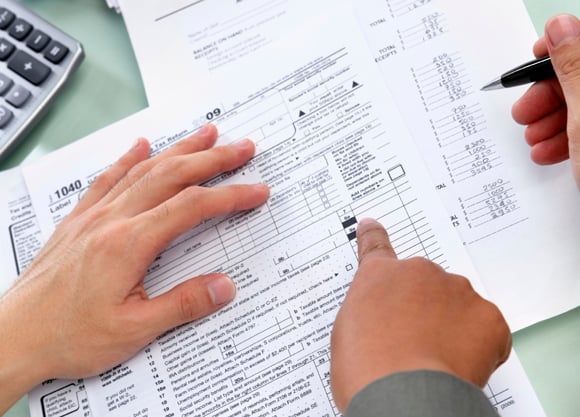President Barack Obama is making his clearest pitch yet for an overhaul of the entire U.S. tax code for individuals and businesses, and the wealthy probably won't like it.
President Barack Obama is making his clearest pitch yet for an overhaul of the entire U.S. tax code for individuals and businesses.
Obama wants Congress to eliminate so-called tax expenditures and lower rates. The goal is to raise more revenue than an extension of current tax policy would generate, according to a summary of his deficit-reduction plan distributed by the White House. He detailed the plan today in a speech at George Washington University in the capital.
The tax increases would make up about $1 trillion of the $4 trillion in deficit reduction Obama is seeking over the next decade. That blueprint is similar to one used by the fiscal commission Obama appointed last year.
“The president is calling for individual tax reform that closes loopholes and produces a system which is simpler, fairer and not rigged in favor of those who can afford lawyers and accountants to game it,” the summary said. “The president supports the fiscal commission's goal of reducing tax expenditures enough to both lower rates and lower the deficit.”
Until now, Obama's calls for a tax overhaul had focused on the corporate code and on allowing income tax rates for high earners to rise in 2013. Under current law, all of the income tax cuts that were extended last year would revert to pre-2001 levels at the end of 2012.
Raising Revenue
Obama's call for revenue-raising tax changes puts him at odds with many congressional Republicans, including House Majority Leader Eric Cantor of Virginia and Senator Orrin Hatch of Utah, the top Republican on the Finance Committee.
These Republican leaders contend that all deficit reduction should be accomplished through spending cuts.
“There's been a lot of discussion about the need to raise taxes,” House Speaker John Boehner, an Ohio Republican, said today. “And I'll just say this: We can't tax the very people that we expect to reinvest in our economy and to create jobs. Washington has a spending problem, not a revenue problem.”
--Bloomberg News--







